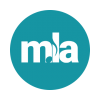BIBFRAME Task Force Business Meeting
Thursday, March 3, 3:30pm, Room Salon H/I
Summary written by Kimmy Szeto, Baruch College, City University of New York
Members present: Kimmy Szeto (chair), Anne Adams, Kirk-Evan Billet, Catherine Busselen, Kevin Kishimoto, Hermine Vermeij, Anna LoPrete, Lisa McFall, Tracey Snyder, James Soe Nyun, Laura Yust
Non-members present: 34 in person, 7 virtual (from the Library Congress locations in Culpeper, VA and Washington, DC)
This meeting was the second and last in-person business meeting of the BIBFRAME Task Force. The goals of the meeting was to wrap up our work before Task Force’s charge expires at the close of the Annual Meeting and to discuss the transition as the Encoding Standards Subcommittee takes over the bulk of MLA’s BIBFRAME development work.
After circulating print copies of the Task Force’s final report to non-members and publicizing other BIBFRAME events at MLA, Kimmy Szeto reviewed the charge of the Task Force, which is, in essence, to study available MARC-to-BIBFRAME conversion tools and to make recommendations in regard to MLA’s role in future BIBFRAME development. The Task Force identified the main priorities: refine the data conversion tools, develop application profiles for scores and sound recordings, and develop specialized linked data vocabularies for music resources. The manner in which the development work is conducted, however, departs from our customary process to amend or revise MARC. BIBFRAME is being developed in a more agile style — smaller groups tackling smaller pieces of work in shorter periods of time — to which the Task Force recommends MLA to adopt.
Laura Yust, supplemented by Caitlin Hunter (via telephone from Culpeper), gave an update on the BIBFRAME metadata creation pilot project drawing to a soft ending in March, ahead of the anticipated LD4P (Linked Data for Production) project commencing in April or shortly after. A slightly earlier but more detailed update (as of ALA Midwinter in January) was reported on pages 55-58 in the Mar-Apr 2016 issue (No. 184) of the MLA Newsletter.
Nancy Lorimer described overarching goal of the grant-funded LD4P project, which is to transition technical services departments to linked data production. Steering LD4P (PMO), the performed music ontology component, will be a group of delegates from various institutions (Stanford (lead), Columbia, Cornell, Harvard, Library of Congress and Princeton, as well as MLA, ARSC, PCC, etc.). Specifics are not available as the meeting took place before the grant was officially announced 6 weeks later on April 18.
Nate Trail (via telephone from Washington, DC) reported that the LC Editor Tool will become publicly available in the next few months to coincide with (or to follow) the unveiling of the BIBFRAME 2.0 vocabulary (which was later announced on April 21, but no new editor yet as of May 4). Notable changes in the 2.0 vocabulary are the disappearance of “Annotation” and “Authority,” and the addition of “Item.” LC will continue to focus on developing high level vocabulary, leaving “hooks” for external vocabularies to cover specialized areas, such as music. Developers such as MLA are free to develop vocabularies and rally users around them. LD4P (PMO) can be one such development project.
Discussion returned to adapting MLA’s internal development process to a more agile model. Jim Soe Nyun (also Chair of the Encoding Standards Subcommittee) presented the idea of having a group (at the time of the meeting variously called “task group,” “work group” and “pool,” now formally called “MLA Linked Data Working Group”), consisting of a broad MLA constituency, technical as well as public service, to be on call to supplement core ESS members who will take the lead on various BIBFRAME development work. This group will be administratively under the auspices of the Cataloging and Metadata Committee, overseen by the CMC Chair. The immediate areas of focus will be: continuing work on the medium of performance ontology (a collaboration with LC which was started by the Task Force) and developing use cases. The work of developing application profiles, because of the large scale, will most likely be carried out by another task force similar to the Genre/Form Task Force.
Members of the Task Force agreed that the next step is to draw up a call for participation to the group, with language that encourages cross collaboration. This action item will be carried out the CMC Chair. (This call for participation later appeared on MLA-L on April 8.)
With that, the BIBFRAME Task Force concluded its work. I would like to thank all the Task Force members for their exceptional dedication throughout this 18-month long process, and everyone who participated online and at this meeting. I urge all who are interested to participate in the MLA Linked Data Working Group.
